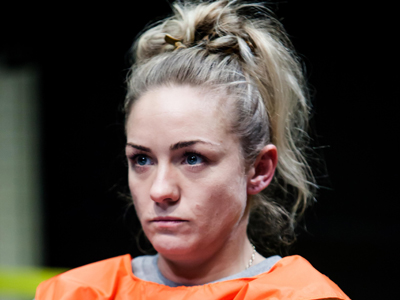
“It’s not The Children Act: The Musical – it asks more general questions about social work,” says Chris Thompson, a social worker whose debut play Carthage has been winning over the theatre critics in recent weeks.
Instead Carthage questions the corporate parenting system with a honesty that’s often lost in the constant clash between enemies and defenders of social work.
“I didn’t want to write a play that said: ‘Oh, look at us social workers, aren’t we good and brave’,” the 34-year-old tells me down the phone.
“I wanted to talk about questions of care and intimacy when raising children in systems and ask the question: do we do more harm than good?”
Aware of how that question might sound out of context, Thomspon quickly adds that he isn’t questioning the need to act in cases of abuse.
“I’m not talking about awful cases of abuse, it’s about that grey area of intervention. Would we have done better to leave certain children with their families if they were ok and it was just good enough? That’s something I’ve always struggled with.
“The outcomes for children in care aren’t great. Some do fine, others don’t. But if we’ve really not got anything better to offer, why are we thinking about moving those groups of children?”
Not that Thompson, who now works in a NHS sexual health service after several years in children and families, thinks he has an answer.
“It’s a provocation. You don’t really know my view at the end of it, it’s very much left to the audience and the play asks more questions than it answers. I don’t know if I know the answer to the question that the play is asking.”
Not that Carthage is a exercise in misery. Instead it is shot through with the kind of dark humour that helped Thompson cope with his time on the children and families frontline.
“Humour has always got me through,” he says. “Not laughing at people’s misfortune and misery but just coping with the ludicrous situations you find yourself in as a social worker.”
What kind of situations? “Like training on drugs and alcohol for social workers,” he says.
“The whole narrative would be about how ‘those’ people, our clients, are drug users and we’re not, but statistically there will probably be social workers in the room who have done coke.”
Carthage isn’t autobiographical – “that would be unethical,” he says – but writing the play involved plenty of reflection about his own career.
“Writing the play did bring it back,” he says. “I look back and I remember how scared I’ve been. I remember crying in the toilets and being scared to go on a visit, feeling powerless and helpless and remembering the times you get it wrong.
“Looking back over 12 years I was like, have I done any good? Have I made any positive contribution? You don’t feel like you do because the change you will see in people isn’t necessarily going to happen right in front of you and it’s unreasonable to think it would.
“I went into the profession with really idealistic views of breakthrough moments and people being grateful and thanking me because their lives wouldn’t be able to change without me and then it was ‘oh my god, everyone hates me’. I’m embarrassed that I thought that way, it was arrogant – well certainly naive, maybe not arrogant.”
Being honest about the profession, he says, is what he set out to achieve with the play.
“I’ve been told that I’m being very honest and people do worry about that,” he says. “But I didn’t want to write this wish fulfilment, I wanted the social worker to be a real person. I didn’t want to write this miserable social worker or one with all the answers either.
“I think the social worker feels real and my social work colleagues who have seen the play agree that the whole world feels very real to them.
“It’s been really interesting listening to the reviews. Some have gone that I’ve made her too saintly, other people say I’ve been too harsh on her so I can’t win,” he laughs.
- Want the chance to win two tickets to see Carthage at London’s Finborough Theatre? Then check out our competition.


 A trauma-informed approach to social work: practice tips
A trauma-informed approach to social work: practice tips  Problem gambling: how to recognise the warning signs
Problem gambling: how to recognise the warning signs 




 Find out how to develop your emotional resilience with our free downloadable guide
Find out how to develop your emotional resilience with our free downloadable guide  Develop your social work career with Community Care’s Careers and Training Guide
Develop your social work career with Community Care’s Careers and Training Guide  ‘Dear Sajid Javid: please end the inappropriate detention of autistic people and those with learning disabilities’
‘Dear Sajid Javid: please end the inappropriate detention of autistic people and those with learning disabilities’ Ofsted calls for power to scrutinise children’s home groups
Ofsted calls for power to scrutinise children’s home groups Seven in eight commissioners paying below ‘minimum rate for home care’
Seven in eight commissioners paying below ‘minimum rate for home care’
 Facebook
Facebook X
X LinkedIn
LinkedIn Instagram
Instagram
Comments are closed.